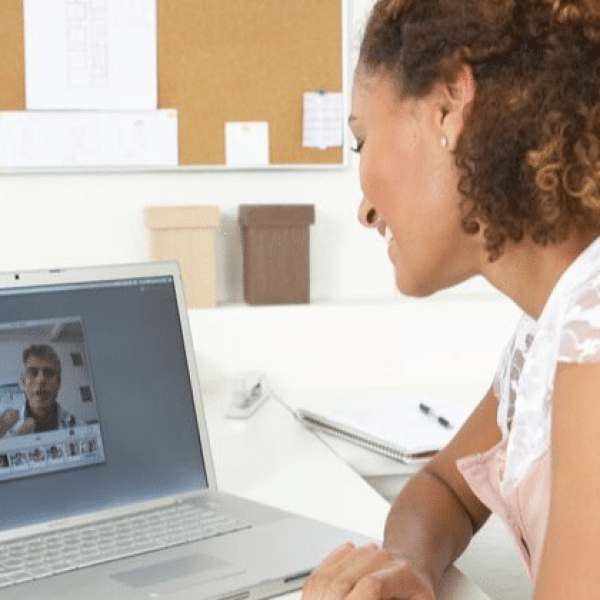It was almost five o’clock last Friday evening. The employees were gathering to
take part in a team happy hour. My coaching client, a manager of a unit for a
multi-national company, had painstakingly organised it. He arranged for
everyone’s beverage of choice to be on hand. He asked a colleague to act as DJ
by collecting everyone’s favourite tune to be played during the party. At the
appointed time, my client raised his glass and gave a toast. In turn, everyone else
raised their own glasses, bottles or cans and the party began. Virtually, of course.
This party was designed to celebrate another week of remote working. The face
of each smiling participant created a colourful mosaic of images on a single
screen.
As he told me during our coaching call, “We’re experiencing something no one
has experienced before. The situation is changing rapidly.”
It’s changing and it’s lingering. As we resign ourselves to settling into this new
physically isolated remote world, some lessons are beginning to emerge.
1) We can become more efficient
John Riordan, Shopify’s director of support for its global remote teams, has been
overseeing remote workers for years. He has watched employees evolve from
remote rookies – where many of us may be at this point – into experienced
veterans.
“It can save so much time to be fully remote,” John told me. “For instance, I set
meetings purposefully. If I’m in office environment, it’s rare to arrange a meeting
with somebody for 10 minutes. Imagine the time cost of booking a room, going to
the room, chit-chatting in the room. All that ‘buffer time’ takes too much
valuable real time. All the people I know who work remote, live by the minute
segment instead of the five-minute segment. Remote working is much more
effective.”
Considering that many of us are working from home while our children and
partners are also in the house with us, finding ways to do more in less time is
extremely important.
A desire to be efficient should not clash with a desire to be empathetic. As my
happy hour manager-client reinforced to me, “Many of us may have worked from
home remotely for a day or two but now we are asking teams to consider this as
indefinite. Our message must be to use video conferences as a way to promote
human connections and empathy.”
I spoke with Felicity McCarthy, the founder of Spark Digital Marketing, for more
perspective on the matter.
She has been providing virtual training for many years and points out that video
conferencing has been around for more than two decades. “But until now, it has
been an irregular and mixed feature. Audio conference calls were still more the
norm and when companies used video it would often be to combine the people
actually in the meeting room with two or three others dialing in. Now everyone is
in the virtual room.”
2. Be seen in the virtual room
That’s why I say, “If you’re going to be in the virtual room, be in the virtual room.”
It’s no longer okay to turn your video off just because you’re not the presenter.
Felicity and I agree that companies should oblige team members to keep their
cameras on.
By way of example, I offer up the first virtual class our brave economics master’s
student we host at our home attended this past week. (She is from India but has
opted to self-isolate with us here in Dublin.) The lecturer turned her camera on,
but did not require the same of her students. This prompted jokes from the class,
many noting that since the lesson was in the morning, they hadn’t bothered to
get out of bed, let alone get dressed. For the record, our awesome student was
dressed and seated at our dining room table!
The point is: turn up and turn on. Being on camera compels you to suit-up and
keep engaged with the others in the meeting.
3. Encourage people to be human
Another feature of video conferencing while remote working is that it brings your
work colleagues into your personal space. While you might have set up a
dedicated office space in your home, that’s no guarantee that your pet or your
children (who are all at home and likely incessantly demanding something if
they’re anything like my daughter) will stay outside the door.
We all likely still chuckle remembering the “BBC dad” who was interrupted during
a live TV video remote interview when his two children barged in and created a
viral work from home moment.
Especially during this time, try to relax. Politely introduce your teams to infringing
kids or even dogs.
We can’t control how long we will be working from home. But we can control
how we react to the situation. Video conferencing is being used for work and also
for connecting us with neighbours we haven’t seen face-to-face in two weeks and
family and friends we haven’t seen in two years.
As Felicity summed up, “The human element to this is adding colour and depth.
We’re all in the bizarre and huge human social experiment together.”
Write to Gina in care of SundayBusiness@independent.ie. With corporate clients
in five continents, Gina London is a premier communications strategy, structure
and delivery expert. She is also a media analyst, author, speaker and former CNN
anchor. @TheGinaLondon







